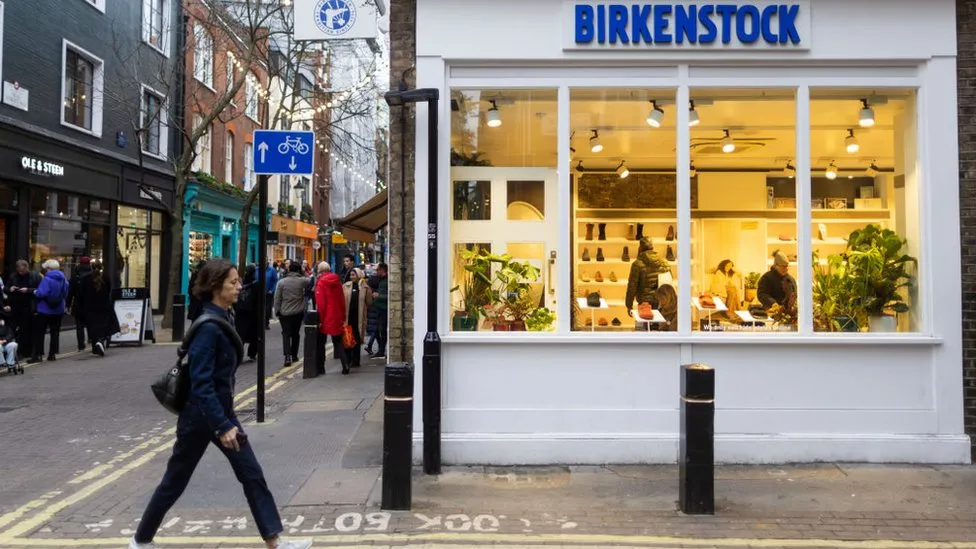Birkenstock is ramping up spending to open stores and expand production, expecting demand for its sturdy two-strap sandal to hold strong despite the risk of shifting fashion.
The German shoe company expects sales to rise more than 15% in its 2024 financial year, after surging 20% to almost €1.5bn (£1.29bn) in 2023.
But the forecast failed to impress investors, sending shares lower.
The results were the first since the company listed its shares in the US.
It has opened the long-time family firm up to judgement on the public market.
Despite executives’ optimism about the outlook, Birkenstock shares dropped more than 8% on the results, which showed profits fell last year and margins are expected to shrink further in 2024 as it continues to invest.
The company is also running into scepticism that the strong consumer spending that has powered its sales can last, as economic growth slows in key markets such as the US and luxury sales weaken.
Boss Oliver Reichert said he was “undeterred” by the wider financial gloom and had seen no significant slowdown in demand.
“It is a bit different from the desire-driven luxury brands,” he said on a call with analysts to discuss results.
“They are much heavier under pressure. We are not – we see growth everywhere.”
Once a byword for a kind of nature-loving, granola-eating dorkiness, Birkenstock has seen its reputation shift over the last decade, with designer collaborations and prime billing in films such as Barbie.
But its ride on the share markets has been bumpy, reflecting questions about how to value the firm, which straddles uncertain territory as a maker of “luxury” shoes for the mass market.
Its shares dropped sharply when they started trading in October but have since recovered.
They were trading at around $45 per share in mid-morning trade in New York on Thursday, after the release of the results.
That was similar to the price they fetched in the firm’s public offering, giving it a market value of about $9bn.
“We are aware that it is not easy to compare Birkenstock to any other listed company,” Mr Reichert acknowledged in a call for investors to discuss the results. “We are neither luxury nor fashion nor footwear.”
In the three months to 30 September, the firm posted a loss of €28m (£24m; $30m), reflecting a jump in administrative expenses ahead of the listing.
That disappointed analysts expecting a small profit, after a summer sales surge sparked by the Barbie film, in which the title character ditches her heels for a pastel pink pair of the firm’s sandals.
But Birkenstock said it had used money from the share sale to pay down debt and saw growth opportunity as shoppers increasingly head directly to the brand to buy, bypassing stores.
Mr Reichert said that so far, the brand had seen no significant slowdown since the 22% sales growth in the three months ending in September.
He said it was opting for a conservative full-year forecast because of risks from inflation and because executives were “rookies” in navigating the shifting sentiments of financial markets.
It is forecasting sales growth of 17-18% in its 2024 financial year.
“We want to make sure that we are on the right side,” he said.

